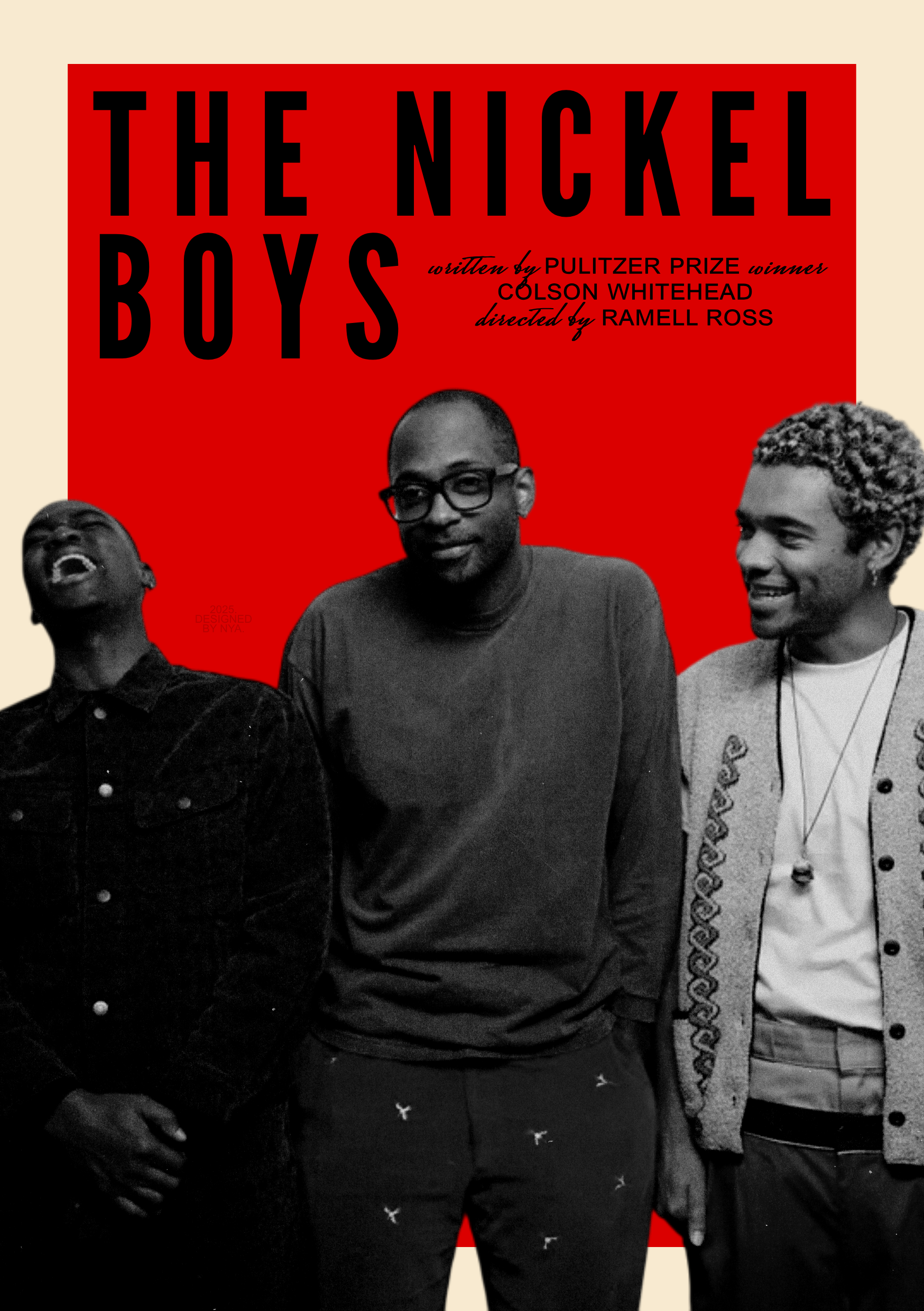Among the most talked about films of 2024, the awards contenders for best picture seem to be between “The Brutalist” and “Anora,” and maybe “Emelia Perez” depending on how viewers feel about that film. In this epoch of American cinema, most of the discussions seem to surround the idea that movies are back.
The Spielberg-esque sci-fi epics exist today with “Dune: Part Two.” The New-Hollywood style adult-dramedies exist today with “Anora.” The classic Hollywood musicals are back with “Wicked.” However, the issue with these discussions is that they do not make any room for the fresh films. The films that are unlike what most people see and are something wholly new. Enter “Nickel Boys.”
“Nickel Boys” is an adaptation of a book by the same name. It follows two boys named Elwood and Turner who are sent to a reformatory school in the Jim Crow South.
The unique filmmaking style separates this movie from all the others. Being shot in first person perspective for the entirety of its runtime, it instantly draws the viewer in. It instantly engrosses the audience in the world of the 1950s, from its choices in costuming to its locations to its music.
The film invokes a similar feeling to Barry Jenkin’s 2018 gem, “If Beale Street Could Talk.” This is achieved through its use of musical score, accompanied beautifully by the film’s cinematography, encapsulating the overall feel for the time period. The compassion for its characters and the deep emotional moments really tie the two films together in conversation with one another. Both films use a non-linear approach to storytelling in order for the structure to appear like a series of memories rather than a story. And this is where the difficulty comes in when attempting to discuss the film.
Unlike “If Beale Street Could Talk” whose plot plays a larger role in the experience of watching it, “Nickel Boys” focuses on more fractals of moments and the atmosphere. Its sound design, use of archival footage and nonlinear structure make it feel more like an experimental art-film rather than a drama.
This is not to say that it does not feature the big moments viewers would expect to see regarding characters experiencing the South in the 1950s; these moments are included, but they never take over the entire duration of the movie. Rather than explicitly directing the audience what to think, it lets them piece it together themselves and come to a conclusion.
A character will be mentioned as missing and then a cut to a newspaper clipping will happen requiring media literacy and critical thinking to understand what the correlation between the two events are. In this way it becomes more interactive. The experience is not one of taking things in but one of actively engaging with the material.
It’s by no means an easy film to watch. The ending is tear-wrenching and heart-breaking, but it is necessary. Films like these are why art is worth making. It’s a reminder that the history of these reformatory schools are not just a product of the distant past. These schools are a reminder that the conversation surrounding segregation is still relevant. The more modern era moments of the film make it clear that people who experienced the Jim Crow South are still around today.
During this Black History Month, it would be worthwhile, especially for allies, to take the time to watch this film. Spike Lee is a great filmmaker; he seems to be one of the only Black filmmakers that people care to consider. There are films being made just as cinematically relevant and articulate as “Do the Right Thing” and these filmmakers need support.
In this age of theater-going, films like “Nickel Boys” need rallying around much more than big studio productions. There will always be the huge Hollywood epics because their escapism is what attracts most movie-goers, but if these smaller independent films are not supported, these filmmakers will lose the opportunity to make another film.
Even though the movie may not be everyone’s cup of tea, there is still a deeper, underlying message worth hearing. People may have criticized the length of the film or the acting within it. But while they may be valid criticisms, it is necessary to have a longer run-time to encapsulate the intricate ideas that the films seek to share. And though the acting in the film is unlike the smaller, more subdued performances celebrated so much at the Oscars, they’re just as incredible and support the film incredibly well.
Verdict: Go watch “Nickel Boys” and tell a friend about it.




